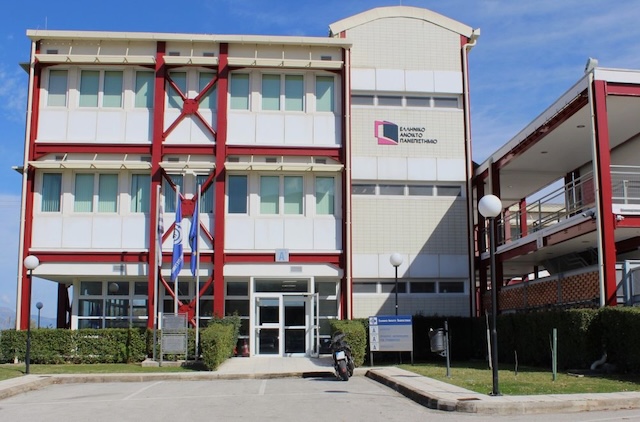
Hellenic Open University Greece
The Hellenic Open University was established in 1992, and its foundation marked a significant shift in Greece’s higher education system, making higher learning more accessible through distance education.
The university’s creation was part of a broader European trend in the 1990s towards expanding access to education through open and distance learning (ODL), a model that offers flexibility for working professionals, individuals in remote locations, and non-traditional students. HOU was Greece’s first university dedicated exclusively to this mode of education
Today, Hellenic Open University is a well-established institution, offering a broad spectrum of undergraduate, graduate, and doctoral programs across various fields. It continues to be a pioneer in distance learning, adapting to new technological trends and expanding its offerings to meet the needs of contemporary students.
In response to the global shift toward digital learning, particularly accelerated by the COVID-19 pandemic, HOU has further embraced online education and virtual classrooms, making its programs more flexible and accessible than ever before.

Research
Hellenic open university research activities are primarily organized through research centers and specialized departments within the university’s various academic schools. These centers and departments focus on different fields of study, including those that directly contribute to the development and advancement of open and distance education.
Research Centers
It hosts several research centers that promote academic inquiry, foster collaborations with external institutions, and contribute to the university’s broader educational mission. These centers often host research projects, workshops, and events that encourage academic exchange.
Doctoral Research
In addition to its undergraduate and postgraduate programs, HOU offers doctoral (PhD) programs, which allow students to engage in high-level research under the guidance of faculty members. The doctoral programs are an essential component of the university’s research environment, helping to build a robust research culture.
Key Research Areas at HOU
HOU’s research agenda spans a variety of disciplines. While some areas overlap with its academic programs, others are more focused on the evolution of open and distance learning, educational technologies, and applied research in real-world settings. Below are some of the core research areas:
Distance Education and E-Learning Technologies
Research in this area focuses on improving the quality, accessibility, and effectiveness of distance education. This includes investigating online learning platforms, virtual classrooms, interactive learning tools, and multimedia content.
HOU is particularly interested in researching how to enhance student engagement and collaboration in digital learning environments.
Projects in this field often explore the use of emerging technologies, such as AI, gamification, and virtual reality, to make online learning more immersive and interactive.
Educational Innovation
HOU is committed to exploring new pedagogical approaches and innovations in teaching and learning. This includes studying the effectiveness of blended learning, hybrid classrooms, and other flexible learning models.
The focus here is on understanding how new teaching methods and educational tools can improve student learning outcomes and how they can be applied to both traditional and distance learning settings.
Humanities and Social Sciences
The university also conducts significant research in the humanities and social sciences, focusing on areas like history, philosophy, political science, and sociology.
Research in these fields often intersects with issues related to modern society, culture, and the role of education in addressing contemporary global challenges.
Business and Economics
Research in business, economics, and management addresses issues such as organizational behavior, strategic management, economic policy, and global business trends.
Projects in this field often focus on the changing landscape of the global economy, entrepreneurship, and the use of technology in improving business operations.
Health Sciences and Education
Research in health education focuses on topics like public health education, nursing education, and medical training, especially in the context of online learning and telemedicine.
Studies often explore the integration of digital tools in health education and how technology can be used to enhance healthcare delivery and patient care.
Law and Political Science
Research in law and political science at HOU addresses key topics such as constitutional law, human rights, public policy, and international relations.
Researchers explore the relationship between law and technology, including issues like cybersecurity, data protection, and digital governance.
Interdisciplinary Research Initiatives
An important feature of research at HOU is its emphasis on interdisciplinary collaboration. The university encourages researchers from different academic fields to work together on projects that address complex global challenges and solve real-world problems.
Collaborations with other universities
HOU engages in partnerships with both Greek and international universities to conduct joint research projects, share knowledge, and publish findings.
Cross-departmental initiatives
Faculty members from various departments often work together on projects that combine educational technology with subject-specific research, such as using AI to improve social science research or combining economics with business administration to study the impact of digital technologies on the economy.
Research Funding and Partnerships
HOU is actively involved in seeking funding for its research initiatives. Research funding can come from various sources:
European Union Programs
HOU is involved in several EU-funded research projects, particularly those related to e-learning, educational technology, and social development.
The university participates in Horizon 2020 and other European research funding schemes that promote scientific collaboration and innovation.
National and International Grants
HOU also applies for funding from Greek governmental bodies, as well as from international research councils, foundations, and NGOs.
The university often seeks support for research on topics that align with national and global priorities, such as sustainability, education reform, and social justice.
Private Sector Collaborations
In recent years, HOU has developed research partnerships with various private sector organizations, especially in industries related to technology and healthcare.
These collaborations help bring cutting-edge research into practice, especially in areas related to digital transformation and the development of new educational tools.
| Faculties |
|---|
| Faculty of Applied arts and culture |
| Faculty of Health Sciences |
| Faculty of Humanities and social science |
| Faculty of Sciences and Technology |
| Faculty of Education |
| Faculty of Law |
| Faculty of Business and Economics |
Campus and Facilities
Hellenic Open University (HOU) operates differently from traditional universities regarding its physical infrastructure.
Since most students engage with the university remotely, HOU does not have the extensive campus facilities typically associated with on-campus universities.
Main Administrative Campus (Patras)
The central administrative headquarters of HOU is located in the city of Patras, in the western part of Greece.
This is where the university’s central administration, academic staff, and faculty are based. While it does not serve as a traditional campus for students, the Patras campus is crucial for academic coordination, research, and university governance.
Online Learning Platforms
Given that Hellenic Open University is primarily focused on distance education, its online learning platforms are the heart of the student experience. These platforms allow students to access courses, submit assignments, communicate with professors, and interact with fellow students from anywhere in the world.
Regional and Study Centers
HOU operates a network of regional study centers across Greece. These centers serve as physical locations for students who may need in-person support or face-to-face interaction during certain stages of their studies. These regional centers do not serve as “campuses” in the traditional sense, but they provide vital functions such as administrative support, exam centers, and occasional in-person classes or seminars.
Library and Digital Resources
HOU offers access to a digital library and a wealth of online resources, catering to the needs of its distance-learning students.
HOU provides access to a vast collection of e-books, journals, research papers, and databases relevant to students’ academic programs. This ensures that students can access research materials and academic literature from anywhere.
Workshops, Seminars, and Conferences
While most of the university’s activities take place online, HOU occasionally hosts workshops, seminars, and conferences, which may be either virtual or face-to-face (depending on the program and location). These events are particularly important for:
Postgraduate and Doctoral Students: Students in these programs may have opportunities to attend in-person seminars or conferences to present research, network with other academics, and gain further insights into their field.
Workshops and Training: Short-term, focused training sessions may be offered to help students develop practical skills in areas such as research methodologies, digital tools, or professional development.
| Courses in English | Bachelor | Masters | PHD |
|---|---|---|---|
| Computer Science | BSC | – | PHD |
| Psycology | – | MSC | PHD |
| Business and Economic | BSC | MSC | PHD |
| International Business | BSC | MSC | – |
| Science and Technology | BSC | MSC | PHD |
| Public Health | BSC | MSC | – |
| Law | BSC | MSC | PHD |
| Education | BSC | MSC | PHD |
| Applied science and culture | BSC | MSC | – |
| Medicine | BSC | MSC | PHD |
| Computer science | BSC | MSC | PHD |
Admission Requirements for Hellenic Open University
The Hellenic Open University (HOU) primarily offers distance education programs at the undergraduate, postgraduate (Master’s), and doctoral levels. The admission requirements vary depending on the level of study and the specific program, but there are general guidelines and criteria that all applicants need to meet.
Undergraduate Programs (Bachelor’s Degree)
The undergraduate programs at HOU are generally designed for Greek and international students who have completed their secondary education (high school diploma) or an equivalent qualification.
Admission Requirements
Applicants must have completed their secondary education (high school) or equivalent, with a recognized diploma.
For international students, a secondary school diploma or equivalent from their home country will be accepted, provided it is recognized by Greek authorities.
Language Proficiency
If the program is taught in Greek, applicants need to demonstrate proficiency in the Greek language. For non-native speakers, HOU may require passing a Greek language proficiency test.
English Language
For English-language programs, applicants must demonstrate sufficient proficiency in English. This can be done via:
A recognized English language certificate (e.g., TOEFL, IELTS, or equivalent).
Completion of previous education in English (e.g., high school, diploma, or certificate from an English-speaking institution).
Required documents typically include
High school diploma (translated into Greek or English, if applicable).
English or Greek language proficiency certificates (if the program is in English or Greek).
Personal identification documents (e.g., passport or national ID).
Curriculum Vitae (CV) or Resume.
Passport-sized photo.
Postgraduate Programs (Master’s Degree)
Admission to Master’s (MSc) programs at HOU is typically competitive, and applicants must meet certain academic and professional qualifications.
Admission Requirements
Applicants must hold a Bachelor’s degree (or its equivalent) from a recognized university or higher education institution. The degree should be in a field relevant to the postgraduate program to which the applicant is applying (e.g., business, psychology, computer science).
Work Experience
Some Master’s programs, particularly those in business, health management, or education, may require applicants to have professional work experience in a related field. This is especially important for MBA programs or programs with a professional focus.
Language Proficiency
Applicants must demonstrate proficiency in the Greek language, which may involve submitting evidence of prior study in Greek or passing a proficiency test.
Programs in English Applicants must demonstrate English language proficiency, which can be proven through recognized certificates such as TOEFL, IELTS, or equivalent, or the completion of previous studies in English.
Required documents include
A Bachelor’s degree (translated into Greek or English, if applicable).
Language proficiency certificates (e.g., TOEFL, IELTS).
Professional CV or resume (particularly for MBA or professional programs).
Personal statement or motivation letter outlining the applicant’s reasons for choosing the program and their future career goals.
Letters of recommendation (in some cases).
Passport-sized photo.
Additional Requirements:
Some programs may require an interview or an entrance exam, especially in law, psychology, and business administration.
For research-focused Master’s programs (such as MSc in Computer Science or Digital Arts), a research proposal may be requested.
Doctoral Programs (Ph.D.)
Admission to the Ph.D. programs at HOU is highly selective and intended for individuals who are committed to conducting original research in their chosen field.
Admission Requirements
Applicants must have a Master’s degree (or its equivalent) in a field relevant to the Ph.D. program they are applying for.
In some cases, applicants with a Bachelor’s degree in a related field may be considered if they have substantial work experience or specialized knowledge in their chosen field of research.
Research Proposal
Applicants must submit a research proposal outlining the intended research topic, objectives, methodology, and expected contributions to the field. This is a critical component of the application for Ph.D. admission.
Supervision Availability
It is important to check whether the desired research area is available for supervision, as Ph.D. programs are often supervised by specific faculty members. Applicants must align their research interests with the expertise of available faculty members.
Language Proficiency
Greek: For programs conducted in Greek, proficiency in the Greek language is required.
English: For English-language Ph.D. programs, applicants must provide proof of proficiency in English (e.g., TOEFL, IELTS, or an equivalent qualification).
Academic and Professional Qualifications
High academic standards are required for doctoral candidates. Relevant research experience, publications, or a strong academic background in the field may be considered beneficial for applicants.
Application Process
A Master’s degree (translated into Greek or English, if applicable).
Research proposal
Letters of recommendation (typically two or three).
Curriculum Vitae (CV).
Language proficiency certificates (TOEFL, IELTS, etc.).
A personal statement or cover letter explaining the research goals and how they align with the program.
Recognition of Foreign
International students whose previous qualifications (high school diploma, Bachelor’s, Master’s) were earned outside Greece may need to have their academic credentials recognized or equivalency assessed by the Hellenic NARIC (National Academic Recognition Information Centre) or the Greek Ministry of Education.
Student Visa and Residency
Non-EU international students planning to study in Greece may need to apply for a student visa and must meet the residency requirements set by the Greek government. HOU may assist with the visa process once the admission offer is confirmed.
Language
Students should ensure that they meet the language proficiency requirements for the specific program they are applying to (Greek or English). While many programs are offered in English, some programs, especially at the undergraduate level, may be conducted in Greek.
ljslaJLKJDLKajdlkajLKDJLKAjdlkAJLAKAKL
You may also like

Aristotle University of Thessaloniki Greece

University of Thrace Greece

